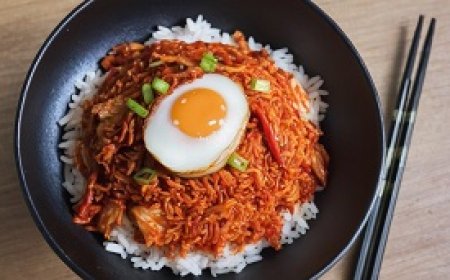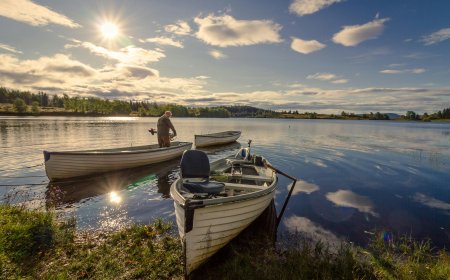A comprehensive guide to scuba diving
Enjoy an exciting and exhilarating experience exploring the depths of the seas with a comprehensive guide to scuba diving. Discover the secrets of marine life and learn how to navigate underwater safely and confidently. The guide provides comprehensive information on necessary equipment, diving techniques, safety, and unique diving sites around the world. Whether you are a beginner or advanced in this sport, this guide will help you enhance your skills and achieve unforgettable diving experiences.

Enjoy an exciting and exhilarating experience exploring the depths of the seas with a comprehensive guide to scuba diving. Discover the secrets of marine life and learn how to navigate underwater safely and confidently. The guide provides comprehensive information on necessary equipment, diving techniques, safety, and unique diving sites around the world. Whether you are a beginner or advanced in this sport, this guide will help you enhance your skills and achieve unforgettable diving experiences.
A comprehensive guide to scuba diving
Scuba diving is an exhilarating and enjoyable activity that takes you on an exploratory journey into a completely different world—the world of oceans and seas. It's an opportunity to directly experience marine life, where you can immerse yourself in the calm blue waters to encounter a vast diversity of beautiful marine organisms and coral reefs.
What is Scuba Diving?
At its core, scuba diving involves submerging underwater using specialized equipment, whether it's shallow or deep. Diving can be a recreational hobby, an educational activity, or even a profession.
Opportunities and Challenges
Scuba diving brings many opportunities, from enjoying the beauty of coral reefs and marine life to exploring sunken ships and historical sites underwater. However, diving also comes with its challenges and risks, such as personal safety, water pressure, and natural changes in the marine environment.
Basic Equipment
To start scuba diving, you'll need basic equipment such as a diving mask, fins, a breathing system, a pressure regulation device, and a wetsuit. All of this equipment ensures your safety and comfort while diving.
Starting Steps
When you begin scuba diving, you should first learn the fundamentals and acquire necessary skills. You can join certified training courses by organizations like PADI or NAUI to learn the theory and practice of diving under the guidance of qualified instructors.
Enjoying the Experience
Once you've learned the basics and are ready, you'll be prepared to enjoy diving adventures. You'll go on exploratory trips to different locations around the world, where you'll immerse yourself in clear waters and explore the wonders of marine life in all its diversity.
Scuba diving is a unique and thrilling experience that gives you the opportunity to discover a new world of beauty and adventure. Embark on this journey and enjoy every moment and new experience beneath the surface of the seas.
Basic scuba diving equipment
Scuba diving requires the use of specialized equipment to ensure your safety and comfort while diving underwater. Here's a list of the essential equipment that should be ready before diving:
1. Diving Mask
- Used to provide clear vision underwater.
- Should be comfortable and snug on the face.
2. Diving Fins
- Used for easy and efficient movement in the water.
- Should be flexible and sturdy at the same time.
3. Breathing System (Regulator and Octopus)
- Provides the air you breathe underwater.
- Should be reliable and properly adjusted to ensure easy breathing.
4. Buoyancy Control Device (BCD)
- Helps control the amount of air flowing to the lungs.
- Ensures efficient air consumption and reduces gas consumption.
5. Wetsuit
- Provides protection from cold temperatures and reduces the negative effects of water on the body.
- Should be well-fitting, comfortable, and provide freedom of movement.
6. Weight Belt
- Used for buoyancy control in the water and to manage buoyancy.
- Contains removable weights to regulate buoyancy.
7. Surface Marker Buoy (SMB)
- Used for signaling in addition to safe diving in emergency situations.
8. Diving Watch
- Displays time and depth and helps track dive time and plan for safe ascent.
9. Dive Knife
- Used for self-defense and cutting ropes or springs in emergency situations.
10. Dive Light
- Provides additional illumination in deep waters or in low-light conditions.
These essential scuba diving equipment items are the basics you need to enjoy a safe and enjoyable diving experience.
How to move with confidence underwater
Moving with confidence underwater is essential for an enjoyable and safe scuba diving experience. Here are some tips to enhance your confidence and comfort while diving:
1. Relaxation and Breathing
- Relaxation and deep breathing should be your first steps before submerging. This helps calm nerves and mentally prepares you to move with confidence.
2. Effective Fin Use
- Apply proper swimming techniques using fins to move confidently and efficiently in the water.
- Use leg movements in coordination with fins to generate necessary propulsion.
3. Maintaining Balance
- Learn how to maintain your balance underwater using a weight belt and buoyancy control.
- Find a comfortable swimming position that allows you to maintain balance without strain.
4. Direction and Navigation
- Use a navigation device such as a dive compass for accurate navigation underwater.
- Apply appropriate navigation techniques to reach designated locations with ease and precision.
5. Slow and Focused Movement
- Move slowly and with focus to avoid stirring up sediment or disturbing marine life.
- Follow environmental guidelines and maintain a balance between exploring and conserving the surroundings.
6. Interacting with Marine Environment
- Be cautious and respect local marine life and the surrounding environment.
- Learn how to interact gently with marine creatures and avoid unnecessary touching or interference with their habitats.
7. Regular Diving Practice
- The more you dive, the more confidence and skills you'll gain underwater.
- Dive regularly and participate in ongoing training courses to improve your skills and increase your confidence.
By following these tips and focusing on moving with confidence, you'll acquire the skill and confidence necessary to enjoy diving safely and comfortably beneath the water's surface.
Important Guidelines to Avoid Risks in Diving
Scuba diving is a fun and thrilling activity, but it carries potential risks. To avoid these risks and enjoy a safe diving experience, follow the following guidelines:
1. Proper Training
- Take certified training courses from reputable organizations like PADI or NAUI.
- Gain the necessary knowledge about the theory and practical aspects of diving before diving.
2. Equipment Check
- Ensure all diving equipment is in good condition and functioning properly before diving.
- Regularly inspect weights, breathing systems, and other equipment before each diving trip.
3. Planning and Balance
- Develop a diving plan that includes target depth, time, and location.
- Properly adjust the weight belt to achieve optimal balance underwater and avoid buoyancy issues.
4. Environmental Awareness
- Exercise caution and assess environmental conditions such as waves, currents, and winds before diving.
- Avoid diving in bad weather conditions or locations with strong currents if you lack sufficient experience.
5. Personal Accountability
- Avoid diving alone and ensure you have a reliable dive buddy.
- Maintain communication with your dive partner and exchange signals to ensure both of your safety.
6. Emergency Preparedness
- Learn and train emergency procedures such as rapid ascent, air sharing, and dealing with air depletion.
- Don't hesitate to use safety equipment like the medical balloon in emergency situations.
7. Breathing and Relaxation
- Maintain regular, deep breathing and avoid tension while diving.
- If you feel any anxiety or discomfort, take regular breaks and practice breathing to calm your nerves.
By following these guidelines, you can reduce risks and increase safety while practicing scuba diving and enjoy a safe and enjoyable diving experience.
Exploring Amazing Dive Sites
Scuba diving allows adventurers the opportunity to explore new and amazing worlds beneath the water's surface. Here are some guidelines and tips to enjoy the best diving experience possible:
1. Find Unique Dive Sites
- Look for renowned dive sites known for their diverse marine life and environmental beauty.
- Utilize websites and diving communities for recommendations on fantastic dive locations.
2. Check Environmental Conditions
- Ensure to study the environmental conditions of the chosen site, such as temperature, currents, and underwater visibility.
- Assess potential risks such as strong currents or sudden weather changes.
3. Adhere to Local Laws and Regulations
- Make sure to comply with local laws and regulations related to diving in the chosen area.
- Check for permits or special permissions required before diving at some locations.
4. Fully Prepare Yourself
- Ensure you are equipped with all necessary gear and diving equipment.
- Regularly inspect and maintain diving equipment before heading to the site.
5. Dive with a Buddy or Dive Guide
- It's preferable to dive with a buddy or qualified dive guide to ensure safety and guidance underwater.
- Benefit from the guide's experience and knowledge in exploring the site and identifying unique natural beauty spots.
6. Interact with Marine Environment
- Handle marine creatures gently and avoid causing harm to oceans and coral reefs.
- Remember that you are a guest in the marine world and should respect and preserve it.
7. Document the Experience
- Don't forget to capture photos and videos to document your underwater experience and share it with others.
- Remember that documentation can help raise awareness about marine environments and their beauty.
By following these guidelines, you'll enjoy a wonderful and enjoyable diving experience at exceptional sites, and you'll be able to safely and comfortably explore new and amazing worlds beneath the water.
Develop Your Skills in Scuba Diving
Scuba diving is an exhilarating and enjoyable activity, but progressing in this sport requires commitment to training and continuous skill development. Here's how you can improve and develop your skills in scuba diving:
1. Enroll in Training Courses
- Start by enrolling in certified training courses offered by organizations like PADI or NAUI.
- Learn the basic theories and practical skills under the guidance of qualified instructors.
2. Continuously Practice
- Regularly practice practical training and maintain the application of learned skills.
- Work on improving swimming techniques and correctly using diving equipment.
3. Experience Different Environments
- Explore various marine environments such as coral reefs, caves, and wrecks.
- Each environment presents different challenges and opportunities to learn and develop new skills.
4. Build Confidence and Comfort
- Work on building confidence underwater and under the pressure of water.
- Practice slow breathing and relaxation in different situations to increase your comfort underwater.
5. Connect with Professionals and Divers
- Seek opportunities to connect with experienced professionals and divers for advice and guidance.
- Engage in local or global diving communities to exchange experiences and expertise with others.
6. Keep Learning
- Continue developing yourself as a diver by attending seminars, workshops, and advanced training courses.
- Look for opportunities to acquire specialized skills such as underwater photography or cave diving.
7. Regularly Dive
- Dive regularly and explore new sites and challenges.
- Each dive will provide you with new experiences and improve your skills underwater.
By committing to training and continuous development, you can improve your scuba diving skills and reach a professional level that allows you to enjoy underwater adventures with confidence and comfort.
Enjoy Life Underwater and Discover Its Beauty
1. Diving unlocks a door to a mesmerizing and enchanting world underwater, where you can explore the beauty of the seas and oceans in an unbelievable way. Here's how you can enjoy life underwater and discover its beauty through diving:
2. Exploring Marine Diversity
- Through diving, you can access a vast diversity of marine life, including colorful fish, beautiful coral reefs, and thrilling marine creatures.
- Enjoy watching the diverse and amazing marine life and discover an astonishing world full of life and vibrant colors.
3. Relaxation and Tranquility
- Underwater, you'll find complete tranquility and calmness, where you can escape from the noises of the outside world and enjoy peace and quiet.
- Enjoy moments of peace and deep immersion and relax in a world full of tranquility and beauty.
4. Diving in Caves and Wrecks
- Explore underwater caves and wrecks, where these sites hide mysterious stories and secrets.
- Discover the beauty and charm of submerged historical sites and enjoy the adventure and excitement they offer.
5. Underwater Photography
- Use an underwater camera to document your moments underwater and capture the beauty of marine life.
- Share your photos and videos with others to raise awareness of the beauty of the marine world and inspire them to explore it.
6. Connecting with Nature
- Establish a close connection with the marine environment and discover the unique relationship between humans and the sea.
- Respect and preserve marine life and the aquatic environment to enjoy its beauty for years to come.
7. Enjoying the Diving Community
- Engage in the diving community and exchange experiences and adventures with other divers.
- Discover famous diving spots and enjoy fun diving trips with your friends and fellow hobbyists.
8. Preserving the Marine Environment
- Join efforts to protect the marine environment and participate in volunteer activities to contribute to preserving marine life and the aquatic environment.
- Work on raising awareness about the importance of ocean protection and promoting sustainability to enjoy its beauty for future generations.
By using diving as a means to enjoy life underwater, you can discover the beauty of the aquatic environment and enjoy a unique and amazing experience that provides you with tranquility and deep immersion in a world full of life, colors, and beauty.
Summary
A comprehensive guide to scuba diving is an essential resource for anyone looking to explore the world of seas and oceans safely and enjoyably. This guide provides a wide range of information and guidance on basic equipment, diving techniques, fantastic dive sites, how to avoid risks, and skill development. Thanks to this guide, both beginners and professionals alike can enjoy exciting diving experiences and wonderful exploration beneath the water's surface with confidence and comfort.
Sources
1. PADI (Professional Association of Diving Instructors) - Beginner's Scuba Diving Guide
2. Scuba Diving Magazine - Articles and resources on diving techniques and excellent dive locations
3. Diver's Alert Network (DAN) - Resources and information on dive safety
4. National Association of Underwater Instructors (NAUI) - Resource guide for aspiring divers
What's Your Reaction?


























































































